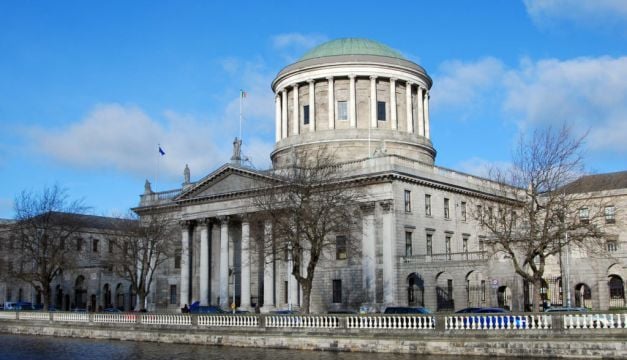An environmentalist has lost his High Court challenge against An Bórd Pleanála's decision to grant permission for a weather mast at a wind farm in Co Cavan.
Val Martin had challenged the board's decision in October 2020 to grant permissions to Raragh Developments for a meteorological mast and the retention of associated developments at the five-turbine Raragh Wind Farm in Corrinshigo, Co Cavan.
Mr Martin, a farmer and environmental campaigner who lives near the wind farm, is also the Irish spokesperson for the "European Platform Against Wind Farms."
The wind farm was built in 2019 and became operational in 2020. Planning permission for the wind farm, which included an 85-metre weather mast at a specified location on the site, was granted in 2010. The mast was not completed alongside the turbines.
In 2020, Cavan County Council granted permission for the completion of the weather mast at a different location on the site, which Mr Martin appealed to the board.
The board, whose inspector recommended that permission be granted, upheld the council's decision to give the mast the go ahead.
Arguments
Mr Martin brought judicial review proceedings against the board, where the council and the developer were notice parties, aimed at having its decision set aside.
Mr Martin argued that the planning authority's decision was flawed because permission for the proposed mast was granted in the absence of an Environmental Impact Assessment (EIA), in circumstances where the mast was being relocated from its original site, being carried out.
An EIA report on the proposed mast should have been, but was not carried out in respect of the mast, it was claimed.
It was also alleged that two public notices of the application were required to be put up close to where the mast was to be erected.
The application proceeded before the High Court by way of a telescoped hearing where the judge considered both the application for leave to bring the action and the full action itself.
Judgement
In his judgement, Mr Justice Cian Ferriter rejected Mr Martin's arguments and refused his application for permission to apply for judicial review.
The court did not accept that substantial grounds had been made out that would allow the court to grant leave to bring the action.
"The judge also held that neither the board nor its inspector had erred by finding that an EIA was not required."

Their findings, he added, were "unimpeachable in law".
The judge said that crucially the mast was part of the original wind farm project which was the subject of planning permission and EIA. The mast did not constitute a further or separate stage of the project, he said.
All that is addressed in the permission the subject of this challenge, the judge said, was the retention/completion of the mast at a different location on the wind farm.
The change of the location of the mast, the judge added, did not render that development as being a new project and did not give rise to any likely significant effect on the environment, he said.







